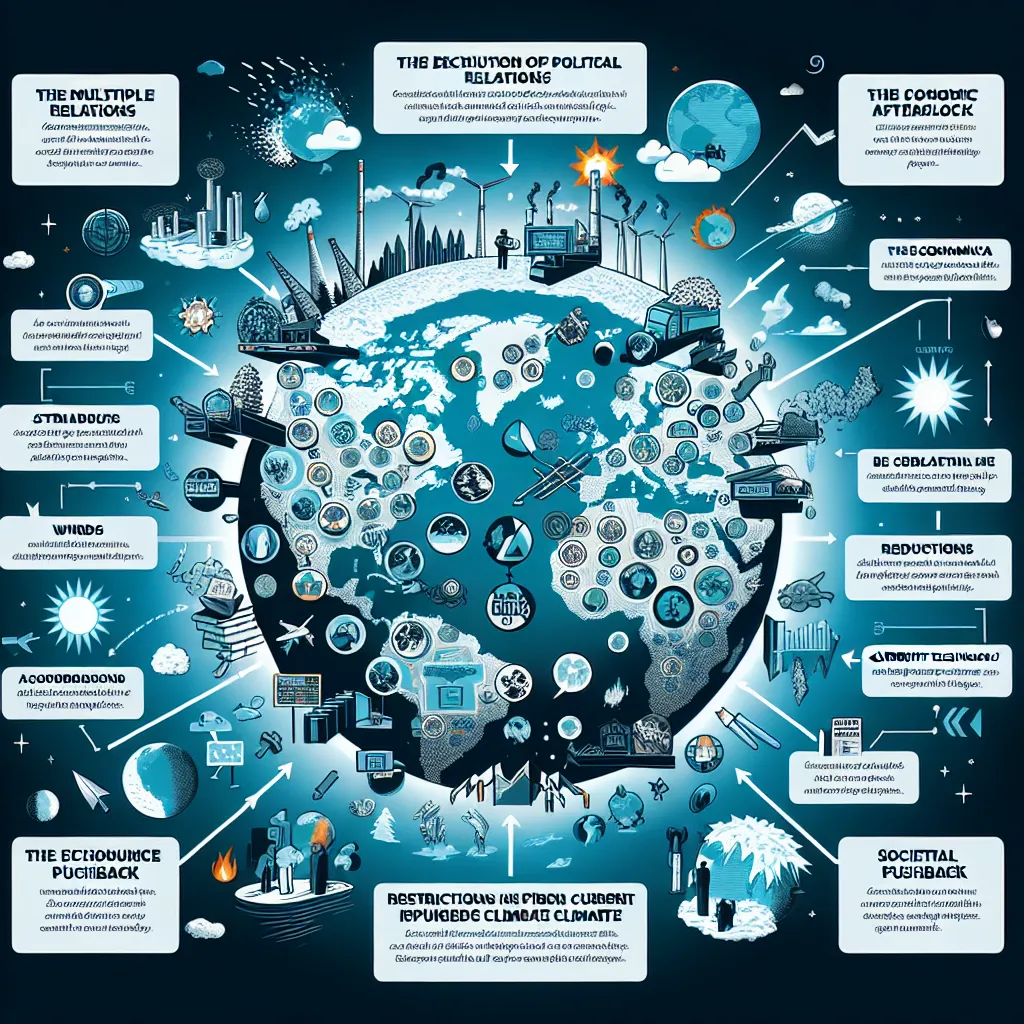The IELTS Reading test is a crucial component of the IELTS exam, assessing candidates’ ability to comprehend complex texts and extract relevant information. One topic that has gained significant attention in recent years is “Challenges in global climate policy implementation.” This subject has appeared in various forms in past IELTS exams and continues to be highly relevant due to its global importance and ongoing developments.
Based on the analysis of past IELTS exams and current global trends, it’s highly likely that this topic will continue to feature in future tests. The complexity and multifaceted nature of climate policy challenges make it an ideal subject for testing candidates’ reading comprehension and analytical skills.
Let’s dive into a sample IELTS Reading passage on this topic, followed by questions, answers, and valuable insights to help you excel in your IELTS preparation.
Sample IELTS Reading Passage: Challenges in Global Climate Policy Implementation
The Global Climate Policy Conundrum
Climate change is undoubtedly one of the most pressing issues of our time, threatening ecosystems, economies, and human lives across the globe. While there is a growing consensus on the need for urgent action, implementing effective global climate policies faces numerous challenges. These obstacles range from political and economic concerns to technological limitations and social resistance.
One of the primary hurdles in implementing global climate policies is the inherent complexity of the issue. Climate change is a global problem that requires coordinated action from all nations, yet countries have varying levels of responsibility, capability, and willingness to act. Developed nations, which have historically been the largest emitters of greenhouse gases, are often expected to take the lead in reducing emissions and providing financial support to developing countries. However, this expectation can lead to political tensions and disagreements over fairness and equity.
Another significant challenge is the economic impact of climate policies. Transitioning to a low-carbon economy often requires substantial investments in new technologies and infrastructure, which can be costly in the short term. Many countries, particularly those heavily dependent on fossil fuel industries, fear that stringent climate policies could harm their economic growth and competitiveness. This concern has led to resistance and delays in implementing ambitious climate targets.
Technological limitations also pose a significant barrier to effective climate policy implementation. While renewable energy sources like solar and wind power have made remarkable progress, they still face challenges in terms of storage, grid integration, and reliability. Additionally, some sectors, such as heavy industry and long-distance transportation, lack viable low-carbon alternatives, making it difficult to achieve deep emissions reductions without significant technological breakthroughs.
Social and behavioral factors further complicate the implementation of climate policies. Changing long-established patterns of consumption and lifestyle can be met with resistance from individuals and communities. For instance, policies aimed at reducing meat consumption or promoting public transportation may face pushback from those accustomed to current practices. Overcoming these social barriers requires effective communication, education, and incentives to encourage sustainable behaviors.
The global nature of climate change also presents challenges in terms of governance and accountability. International agreements like the Paris Agreement provide a framework for global action, but enforcement mechanisms are often weak. Countries may set ambitious targets but fail to implement the necessary policies to achieve them, with limited consequences for non-compliance. This lack of strong accountability can undermine the effectiveness of global climate efforts.
Finally, the long-term nature of climate change impacts poses a challenge for policymakers who often focus on short-term political cycles. The benefits of climate action may not be immediately visible, while the costs are often more immediate and tangible. This mismatch in timescales can make it difficult to garner political support for ambitious climate policies, particularly when faced with competing priorities such as economic growth or social welfare programs.
Despite these challenges, there are signs of progress in global climate policy implementation. Many countries are setting increasingly ambitious emissions reduction targets, and renewable energy adoption is accelerating worldwide. International cooperation on climate issues is also growing, with initiatives like the Green Climate Fund supporting developing countries in their transition to low-carbon economies.
In conclusion, while the challenges in implementing global climate policies are significant, they are not insurmountable. Overcoming these obstacles will require sustained political will, technological innovation, economic transformation, and social engagement. As the impacts of climate change become more apparent, the imperative for effective global action grows stronger, driving the continued evolution of climate policies worldwide.
 Global Climate Policy Challenges
Global Climate Policy Challenges
Questions
Section A: Multiple Choice
Choose the correct letter, A, B, C, or D.
-
According to the passage, which of the following is NOT mentioned as a challenge in implementing global climate policies?
A) Political tensions between countries
B) Economic impacts of transitioning to a low-carbon economy
C) Lack of scientific consensus on climate change
D) Technological limitations in certain sectors -
The passage suggests that developed nations are expected to:
A) Ignore climate change issues
B) Focus solely on their own emissions
C) Take the lead in reducing emissions and provide financial support
D) Blame developing countries for climate change -
What is described as a barrier to implementing ambitious climate targets in some countries?
A) Lack of renewable energy resources
B) Fear of harming economic growth and competitiveness
C) Insufficient population to support change
D) Absence of international agreements
Section B: True/False/Not Given
Do the following statements agree with the information given in the reading passage?
Write:
TRUE if the statement agrees with the information
FALSE if the statement contradicts the information
NOT GIVEN if there is no information on this
- All countries have equal responsibility and capability to address climate change.
- Renewable energy sources like solar and wind power have completely solved the energy storage problem.
- The Paris Agreement provides a strong enforcement mechanism for climate targets.
- The adoption of renewable energy is accelerating worldwide.
Section C: Matching Headings
Match the following headings with the correct paragraphs in the passage. Write the correct number (i-viii) next to questions 8-11.
i. Short-term vs. Long-term Perspectives
ii. The Role of Technology in Climate Policy
iii. Economic Concerns and Policy Resistance
iv. Global Governance Challenges
v. The Complexity of Global Cooperation
vi. Social and Behavioral Barriers
vii. Progress Despite Obstacles
viii. The Impact of Climate Change on Ecosystems
- Paragraph 2 ___
- Paragraph 3 ___
- Paragraph 6 ___
- Paragraph 8 ___
Section D: Sentence Completion
Complete the sentences below. Choose NO MORE THAN THREE WORDS from the passage for each answer.
- Countries that have historically been the largest emitters of greenhouse gases are often expected to __ in reducing emissions.
- Transitioning to a low-carbon economy requires substantial investments in __ and infrastructure.
- Changing long-established patterns of __ can be met with resistance from individuals and communities.
Answers and Explanations
-
C
Explanation: The passage does not mention a lack of scientific consensus as a challenge. It states that there is a “growing consensus on the need for urgent action.” -
C
Explanation: The passage states, “Developed nations, which have historically been the largest emitters of greenhouse gases, are often expected to take the lead in reducing emissions and providing financial support to developing countries.” -
B
Explanation: The passage mentions that “Many countries, particularly those heavily dependent on fossil fuel industries, fear that stringent climate policies could harm their economic growth and competitiveness.” -
FALSE
Explanation: The passage states that “countries have varying levels of responsibility, capability, and willingness to act.” -
FALSE
Explanation: The passage mentions that renewable energy sources still face challenges in terms of storage, grid integration, and reliability. -
FALSE
Explanation: The passage states that “enforcement mechanisms are often weak” in international agreements like the Paris Agreement. -
TRUE
Explanation: The passage states, “renewable energy adoption is accelerating worldwide.” -
v
Explanation: Paragraph 2 discusses the complexity of global cooperation in addressing climate change. -
iii
Explanation: Paragraph 3 focuses on the economic concerns and resistance to climate policies. -
iv
Explanation: Paragraph 6 discusses the challenges of global governance and accountability in climate policy. -
vii
Explanation: Paragraph 8 highlights the progress being made despite the challenges in implementing climate policies. -
take the lead
Explanation: The passage states, “Developed nations… are often expected to take the lead in reducing emissions.” -
new technologies
Explanation: The passage mentions “substantial investments in new technologies and infrastructure.” -
consumption and lifestyle
Explanation: The passage refers to “Changing long-established patterns of consumption and lifestyle.”
Common Mistakes to Avoid
-
Overlooking key phrases: Pay attention to qualifying words like “often,” “some,” or “many.” These can change the meaning of a statement.
-
Generalizing information: Avoid assuming that a statement applies universally if the passage only mentions it in a specific context.
-
Confusing similar concepts: Be careful to distinguish between related ideas, such as “economic impacts” and “technological limitations.”
-
Misinterpreting “Not Given” answers: Remember that “Not Given” means the information is neither confirmed nor contradicted in the passage.
-
Falling for distractors in multiple-choice questions: Carefully read all options and eliminate those that contradict the passage or are not mentioned.
Key Vocabulary
Here are some important vocabulary items from the passage, along with their definitions and phonetic transcriptions:
- Conundrum (noun) /kəˈnʌndrəm/ – a confusing and difficult problem or question
- Inherent (adjective) /ɪnˈhɪərənt/ – existing in something as a permanent, essential, or characteristic attribute
- Stringent (adjective) /ˈstrɪndʒənt/ – (of regulations, requirements, or conditions) strict, precise, and exacting
- Viable (adjective) /ˈvaɪəbl/ – capable of working successfully; feasible
- Imperative (noun) /ɪmˈperətɪv/ – an essential or urgent thing
- Resilience (noun) /rɪˈzɪliəns/ – the capacity to recover quickly from difficulties; toughness
Grammar Focus
Pay attention to the use of conditional sentences in discussions about climate policy. For example:
- Zero conditional: “If countries set ambitious targets, they need strong policies to achieve them.”
- First conditional: “If we implement effective policies now, we will mitigate future climate impacts.”
- Second conditional: “If all nations cooperated fully, we could achieve significant emissions reductions.”
- Third conditional: “If countries had acted sooner, some climate impacts might have been avoided.”
Tips for IELTS Reading Success
-
Practice active reading: Engage with the text by highlighting key points and making mental summaries as you read.
-
Improve your time management: Allocate your time wisely between reading the passage and answering questions.
-
Expand your vocabulary: Regularly learn new words related to climate change and environmental topics.
-
Develop skimming and scanning skills: Practice quickly identifying main ideas and locating specific information.
-
Analyze question types: Familiarize yourself with different IELTS question formats and develop strategies for each.
-
Read widely on climate-related topics: Stay informed about current climate issues to build background knowledge.
-
Practice with authentic materials: Use real IELTS practice tests and high-quality preparation materials.
Remember, success in IELTS Reading comes with consistent practice and a strategic approach. Focus on understanding the passage’s main ideas and supporting details, and always base your answers on the information provided in the text.
For more insights on related topics, check out our articles on sustainability challenges in transportation and challenges of achieving sustainable energy transitions.


